Family, Friends of Traffic Victims Hold Vigil Outside Senator Marty Golden’s Bay Ridge Office
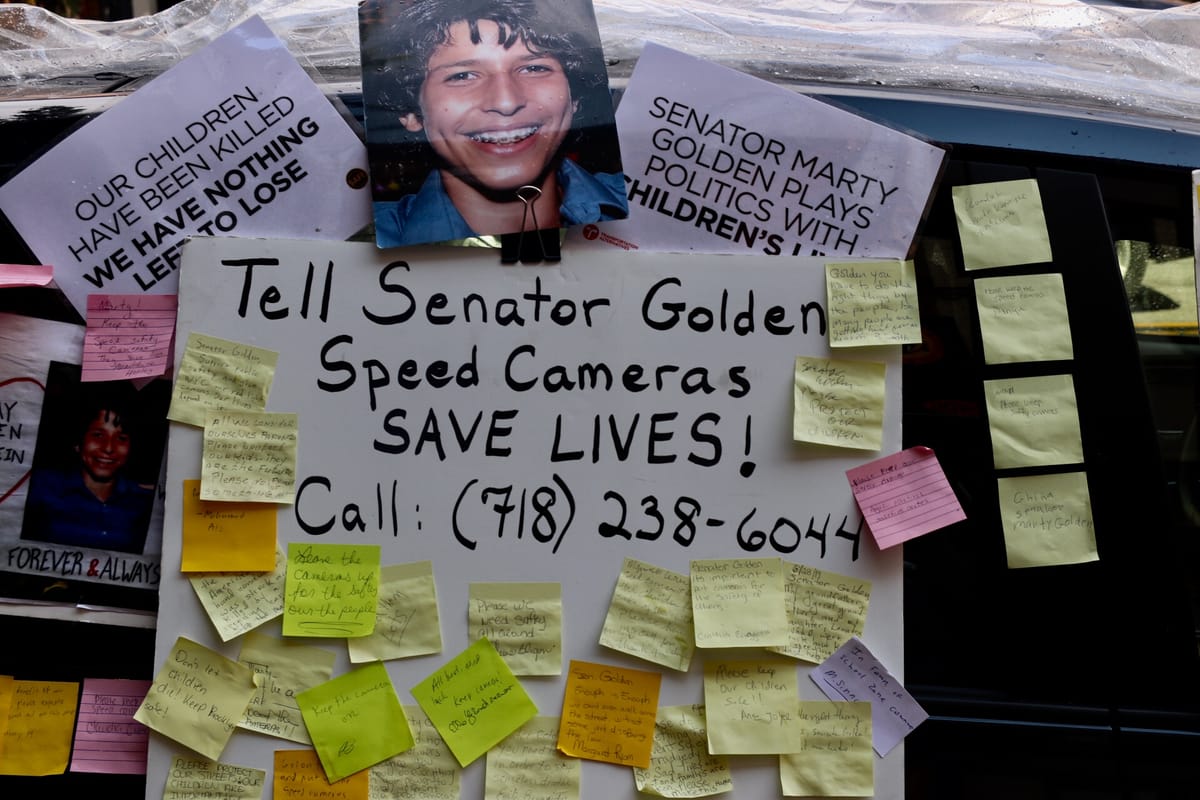

BAY RIDGE – “The nights are the hardest. My son would’ve graduated, went to his prom this week, had a girlfriend… maybe,” Amy Cohen said, choking up. “I just miss him every day.”
Parents, spouses, and loved ones gathered outside Senator Marty Golden’s Bay Ridge office for a 24-hour vigil demanding action from the senator to renew and expand the speed safety camera program outside schools in the city. Among them was Amy Cohen, the founder for Families for Safe Streets. Her son was killed by a van outside their home in 2014.
The vigil began at 9 am on Thursday and lasted until 9 am this morning. While some protestors were planning on taking shifts standing outside Golden’s office during the vigil, asking passers-by to write letters to the senator, Cohen was set on staying the entire night—even in the heavy rain.
“I’ve already paid the biggest price, so what’re 24 hours in the rain?” Cohen says. “It’s just one day. I can give up a day. My son gave up all the days of his life.”
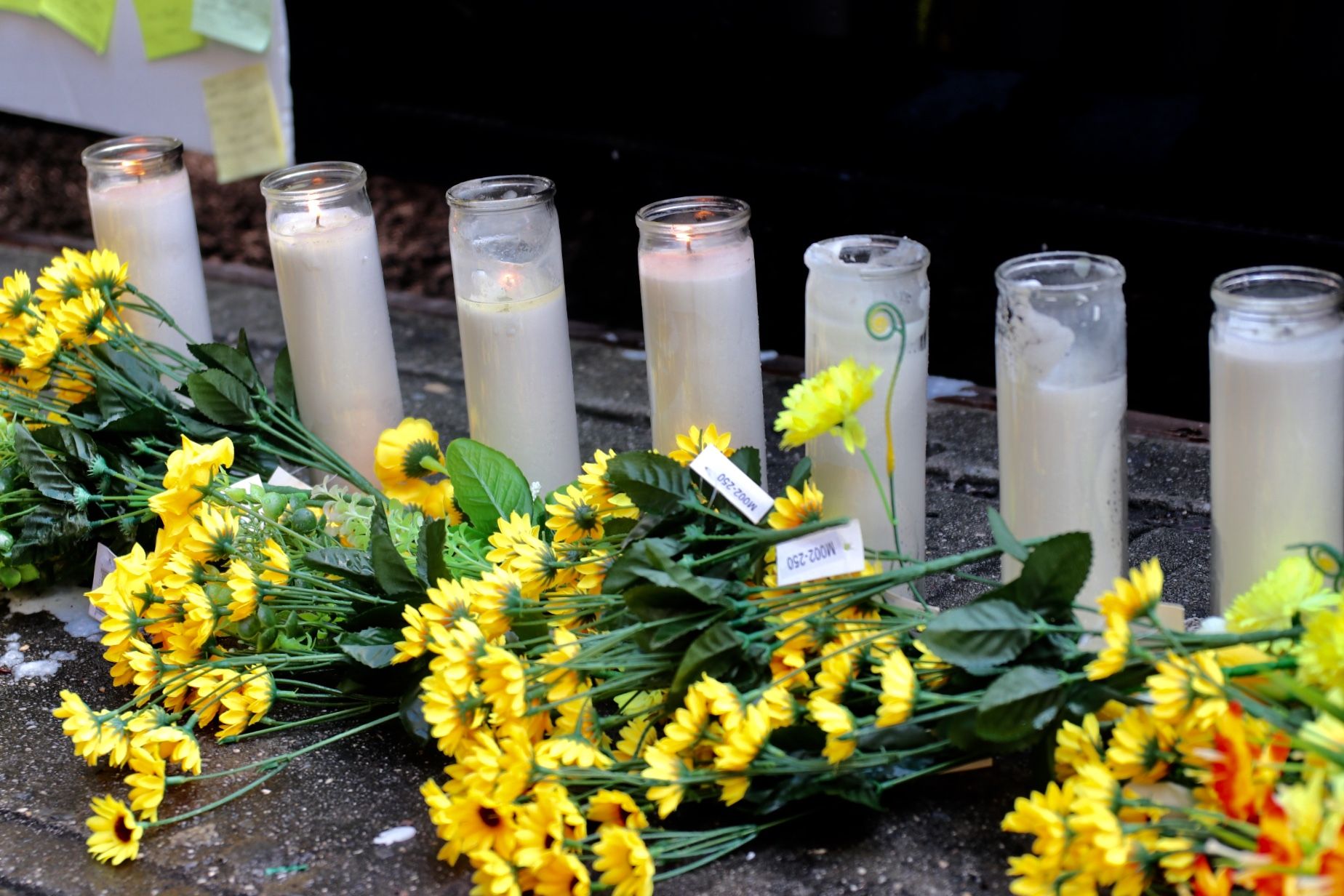
The vigil comes after a report was published by Transportation Alternatives and Council Member Justin Brannan, stating that “New York City drivers have killed at least nine children in traffic crashes so far this year.”
“In less than six months, drivers have already killed the same number of children killed in traffic in all of last year,” the report reads.
The vigil took place after a failed legislative effort to expand the speed camera program, set to expire on July 25, which will turn off 140 speed cameras monitoring traffic outside schools.
What part of preventing drivers from speeding near schools could anyone disagree with? In 2018, how is keeping kids safe controversial? Playing politics with this issue is an absolute disgrace. Period. #everyschool #CURBSpeeding @TransAlt
— Justin Brannan (@JustinBrannan) June 29, 2018
“We need action,” Cohen says. “The Senate needs to reconvene and pass the bill. Senator Golden needs to do the right thing.”
Speed cameras have ticketed the Senator’s Cadillac 14 times for speeding through school zones since 2014—a total of $700 in violations, Streetsblog reported earlier this week.
At the vigil, Golden did not come to speak to the protestors. He was spotted by some unloading his car a block away. The Senator also went to Twitter to express his frustration in a now-deleted tweet:
Perhaps some reporters want to ask Senator Marty Golden about this (now deleted) tweet?
"You people" in this case are the grieving mother of children killed by reckless and speeding drivers. pic.twitter.com/CaHADN5jwt
— Transportation Alternatives (@TransAlt) June 28, 2018
Senate Bill S6046C is a bill that would expand and renew the speed camera program but is being held up in the Senate– which is why Cohen was outside Golden’s office.
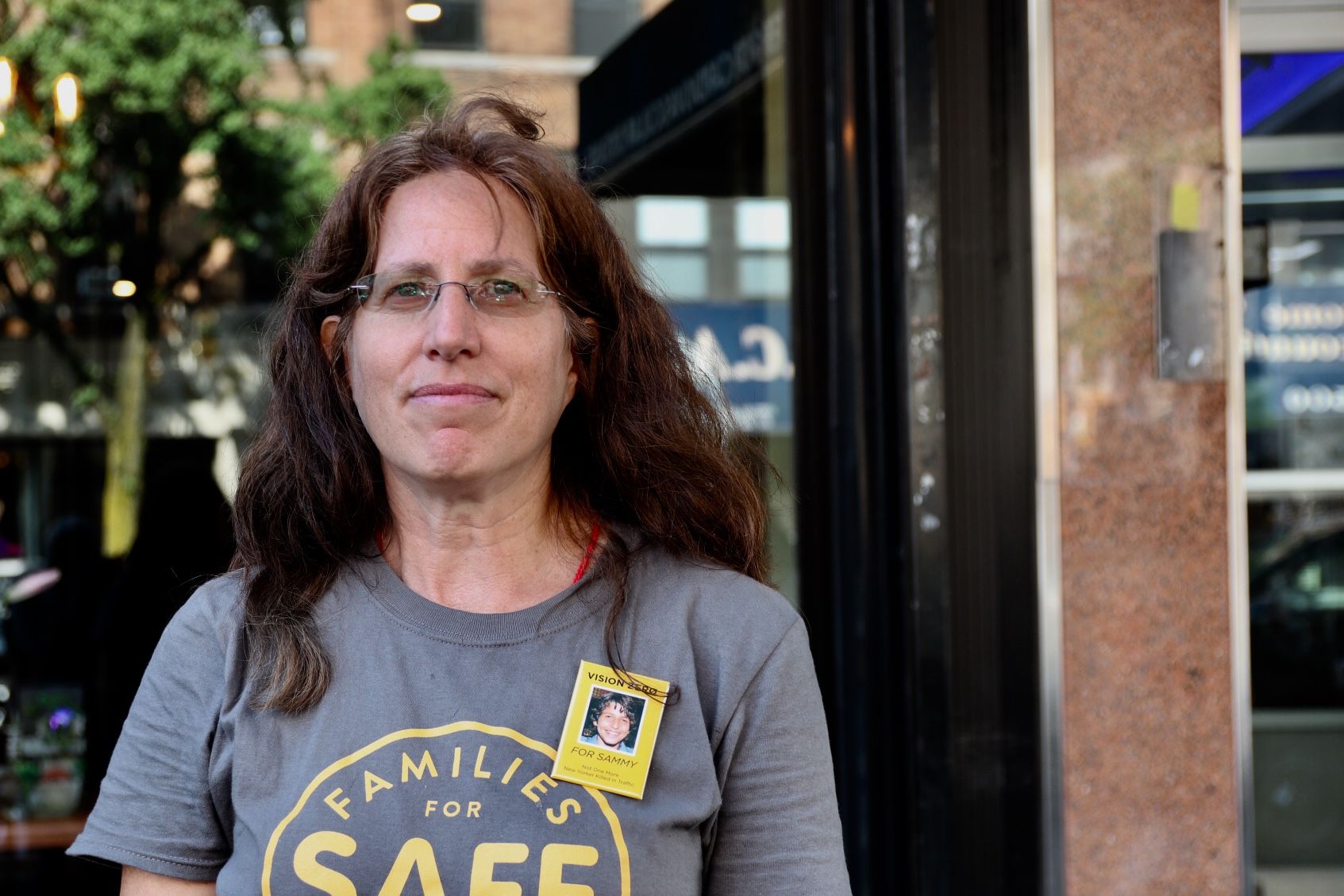
“Losing a child is the most painful thing anybody can go through,” Amy Cohen said, tears in her eyes in the rain.
Her son, Sammy Cohen Eckstein, was killed on October 8, 2014, in Park Slope. Ever since then, Cohen and her family have been advocating for speed cameras and street safety. Is it worth it?
“It should not take this long to make a change,” Cohen says. “We all got a lot of pain we gotta put somewhere; it’s better to put it somewhere productive. Clearly, I’m not alone.”
Park Slope is no stranger to traffic violence. Two children were killed just last March when a car struck them and a pregnant mother on Fifth Avenue. The unborn baby also died a few months later. Families for Safe Streets is an organization that wants to end all traffic violence so no parent ever has to lose their kid again.
Just this month, a car struck a young boy and his mother in Canarsie. The 33-year-old mother, Shaena Sinclair, died. Transportation Alternatives released a statement saying that Sinclair’s life could’ve been saved by the presence of a camera, which would have slowed the motorists involved in the fatal crash.
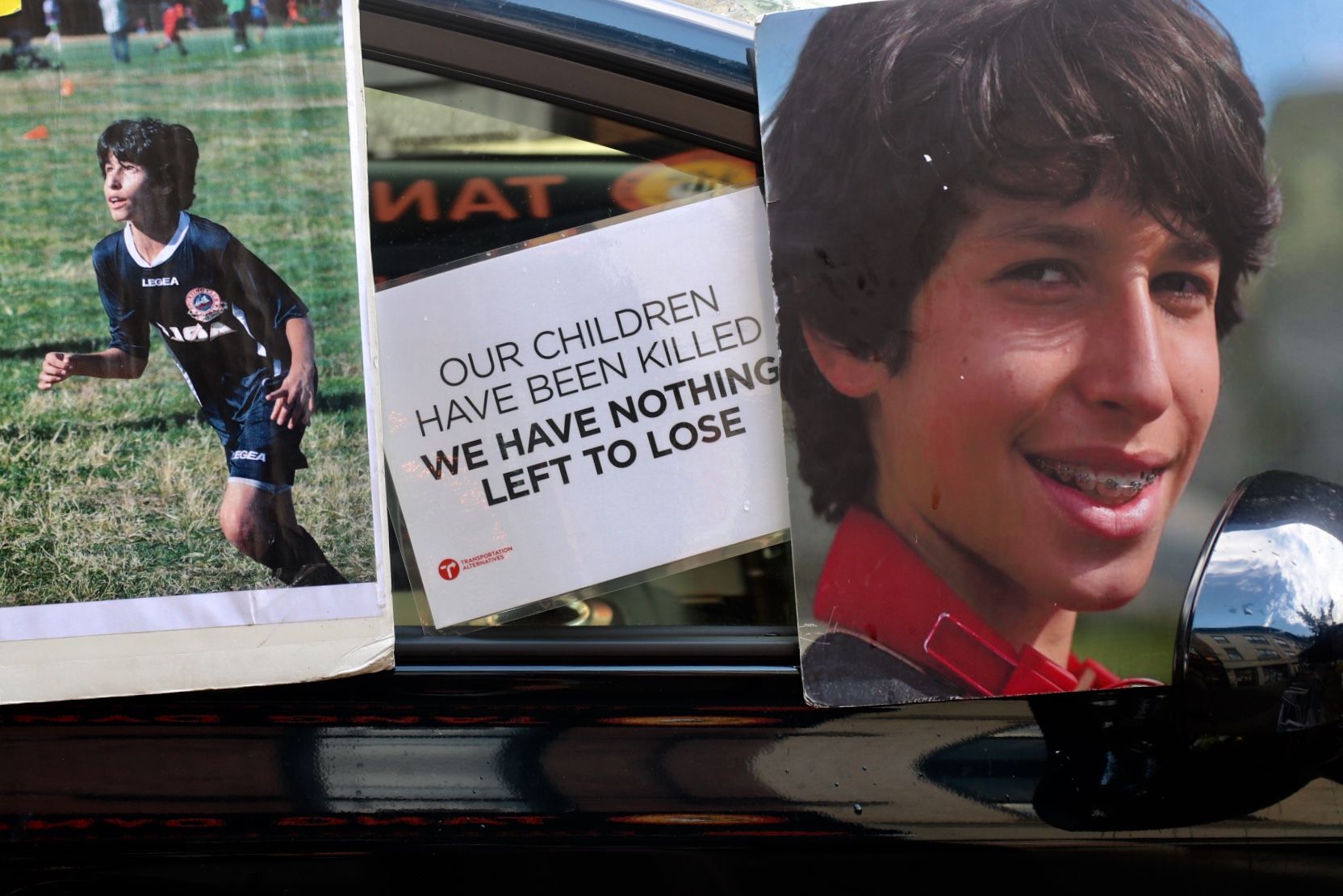
Mary Beth Kelly, a clinical social worker, was also present at the vigil outside Golden’s office. Kelly lost her husband to a reckless driver 12 years ago—Friday would’ve been their 45th wedding anniversary.
“My daughter is getting married in two weeks and she won’t have her father there,” Kelly says. “There’s no more anniversaries, no more Father’s days.”
Her husband, Dr. Carl Henry Nacht, was a beloved physician. Kelly has been honoring him in every way she can all of these years. Advocating on his behalf is how she copes with grief, she says.
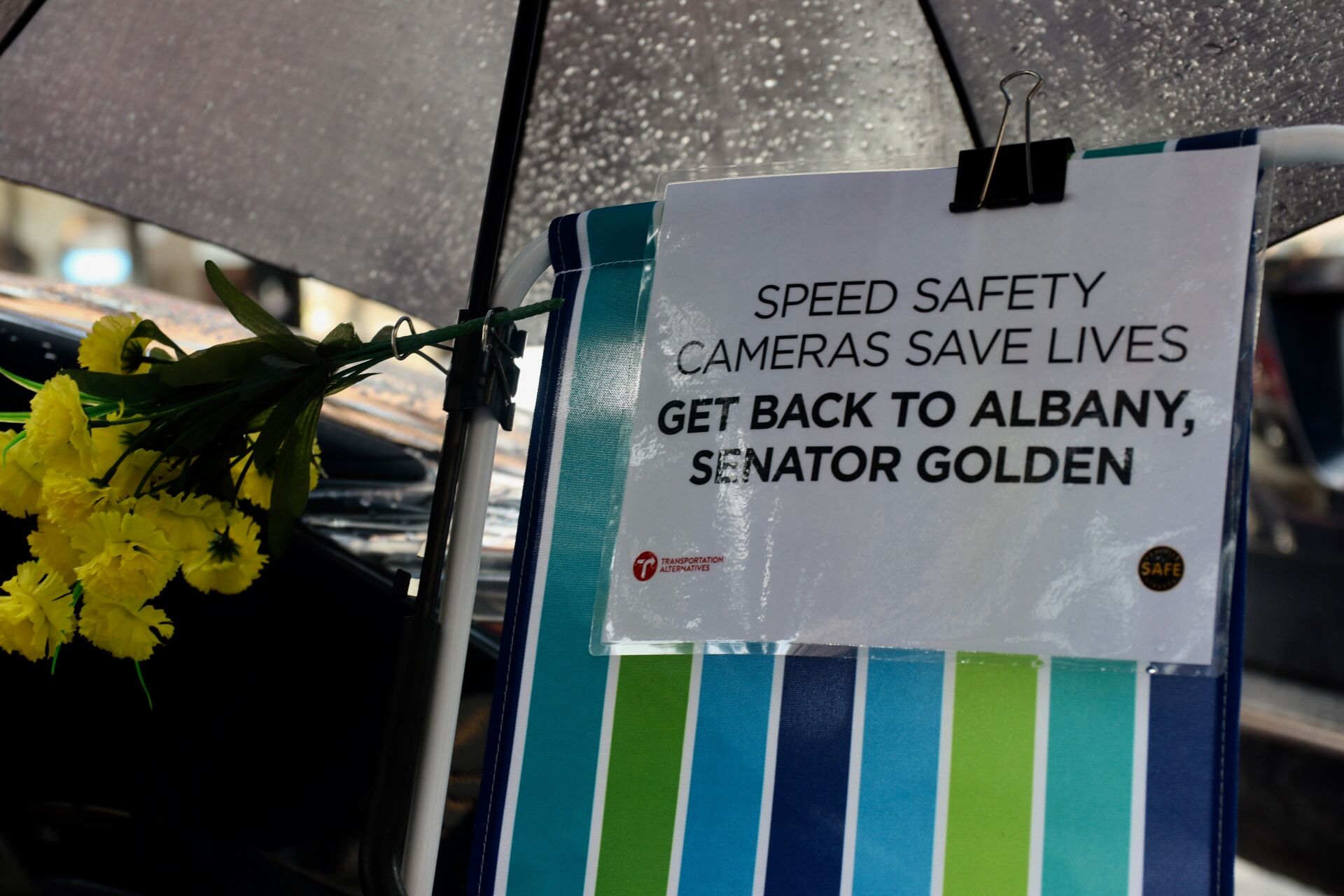
“This is the time where we need moral leadership. We need something that can save lives and stop suffering,” Kelly says. “We do everything we can to draw public pressure, awareness, and to get legislatures to not play with politics and our lives.”
“Someone who’s representing his constituents needs to know that we will not take this lightly. You’re putting your community’s lives at risk,” she says about Golden. “There will be blood in your hands the next time someone is killed because you could’ve stopped it but didn’t.”
Walter Goldberg is a 17-year-old about to enter his senior year of high school. Four years ago, he would spend his days playing baseball, hockey, and simply hanging out in the neighborhood with his friend Sammy. Now, his friend is dead and Walter is here volunteering his time getting strangers to write letters to the senator. It’s been years since Cohen saw him. In fact, she didn’t even recognize him at first. “My son would’ve looked like him,” she says.
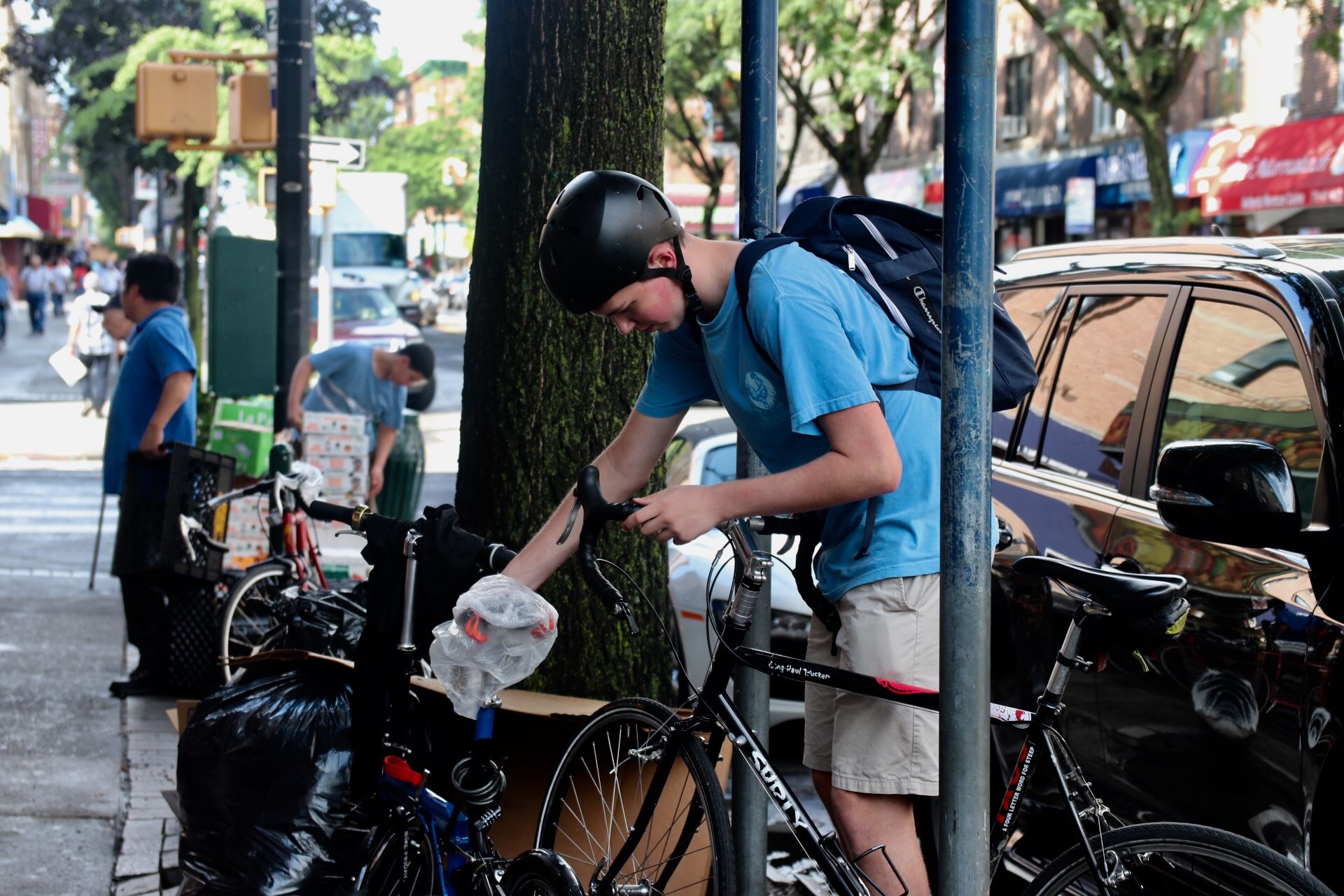
“It’s ridiculous what Senator Golden is doing,” Walter says. “People are uninformed about the bill. As a ‘technical’ child, I have a stake in this. I don’t want people speeding by my school or any school.”
Five years ago, Jane Martin-Lavaud’s daughter, Leonora, was killed by a drunk driver driving way past the speed limit. She was 24 years old and attended Brooklyn College.
“We’re here to help the community, but we’re here in behalf of our own children. We know the impact it has on our lives,” Martin-Lavaud says. “It’s enough that we have diseases and natural disasters, so why do we have to have human-made violations?”

Leonora grew up in Park Slope. After she died, her family moved to Gravesend and it just so happened to be blocks away from where she was killed. It serves as a constant reminder to Martin-Lavaud.
“Speed safety cameras are just one piece of the puzzle for changing the culture of driving vehicles, which are essentially manned-missiles traveling at high speed.”
When will it all be enough?
Amy Cohen said it simply: “It will be enough when there aren’t any more people killed in traffic crashes.”




